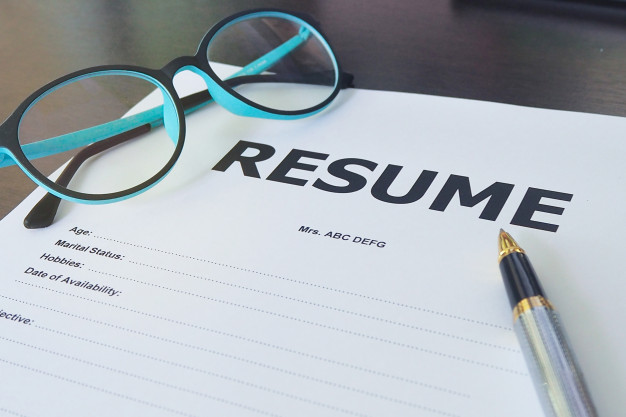Do you know how to write a job-winning resume? Having a well-written resume is crucial in landing the job you want. Being qualified for a job may not be enough. Your resume should be able to make that first impression and get you to the interview stage. Here we bring you some ideas on how to write a resume that gets you the recruiter’s attention.
Keep in mind these 5 simple yet effective points for writing a great resume:
1. Ask yourself these questions before you start
2. Divide your resume into five parts
3. Style your resume the right way
4. Check for grammar and language use
5. Add more power with keywords
1. Ask yourself these questions before you start

Before you start writing down your resume, it is a good idea to contemplate these questions.
- How long should my resume be?
- What kind of position am I seeking?
- What does the employer want to see?
- Am I giving the employer what they want?
- “So what?”
- What sets me apart from my competitor?
Once you have a fair idea about each of their answers, you can begin writing your resume.
Can’t figure out the answers? Get them here: 6 Questions to Ask Yourself when Writing your Resume
2. Divide your resume into five parts

Let us break down a resume and offer you with some tips to write a successful one.
- Name and contact
- Introduction
- Work history
- Skills
- Education
- Name and contact
Start with providing your full name and contact information such as your mobile number and professional email address. This gives the recruiter ready access to contact you if they find you interesting.
- Introduction
How you introduce yourself in the resume reflects where you stand in the professional sphere. So, it is important to choose the right style in making your impression as a suitable candidate. Below are three distinct styles you can pick from.
Summary of qualifications: You can list out your skillsets, especially if the position demands certain skills from you.
Resume objective or career objective: You can write down what all you can do for the job, aligning it to your professional goals.
Professional profile: This would be a combination of the above two introduction styles, where you list out your best skills and explain what you bring to the job.
Go through these sample resume objectives for great ideas: Resume Objective Examples
- Work History
After reading your name, most recruiters commonly go straight to checking your professional history. So, make sure you give attention to this section.
Depending on whether you choose the chronological resume format, the functional resume format or the hybrid resume format, you can emphasise or de-emphasise your work history.
Take a detailed look at the three resume formats here: Resume Formats: Choose the One That’s Right for You
- Skills
The skills section is the next most important one when writing a good resume. This is even more true if you are following the functional or hybrid resume format. You can divide your skills into technical and non-technical (soft skills) to present a varied skillset to the recruiter.
Technical skills: These include any software you work with and your technical efficiencies.
Soft skills: These include your interpersonal and personality traits that make you a good fit for the job.
Additional skills: This section can be added for any certifications you may have received to enhance your skills on the job.
- Education
Lastly, the education section lists out your school, college and university along with your subjects and specialisation.
3. Style your resume the right way

Once you have all the content in place, the next step is presenting it well. Your resume must display all your information in the most reader-friendly and appealing manner. Here are some do’s and don’ts for styling your resume:
|
|
Do |
Don’t |
|
Font |
Use formal font styles such as Arial, Calibri, etc. |
Use over-stylised fonts, handwriting fonts or informal fonts. |
|
Size |
Use font sizes from 10 pt. to 12 pt. for maximum readability. |
Try to cram more information into one page using a smaller font size. |
|
Formatting options |
Be consistent with how you format headlines throughout. |
Use multiple colours or cases randomly. |
|
Spacing |
Maintain the same spacing between sections or paragraphs. |
Keep all your text in big chunks together as it looks difficult to read. |
4. Check for grammar and language use

Once you have finished compiling and formatting your information on the resume, there is an extremely important step left – proof-checking your entire resume.
- Avoid spelling errors at all costs. Run it through an online grammar checker if you can. Or, have someone else check it after you.
- Another important note is to never use any kind of casual slang or short forms that you may be used to while texting.
5. Add more power with keywords

Make use of the job description to pick out the most relevant keywords. Adding these keywords into your resume makes it easier to get picked up by the recruiter’s tracking system.
Here are some bonus tips on how to word your resume more powerfully: Power Your Resume with Action Verbs
You may also want to read:




